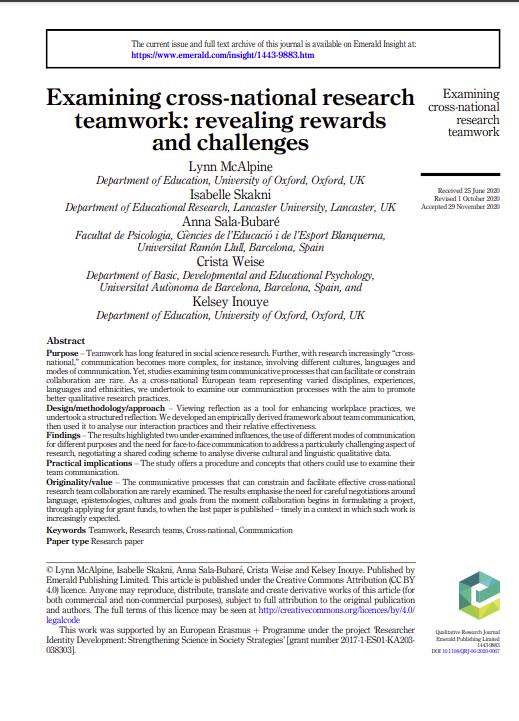Examining cross-national research teamwork: revealing rewards and challenges
Licencia: Creative Commons (by)
Autor(es): McAlpine, Lynn; [et al.]
Purpose: Teamwork has long featured in social science research. Further, with research increasingly "cross-national," communication becomes more complex, for instance, involving different cultures, languages and modes of communication. Yet, studies examining team communicative processes that can facilitate or constrain collaboration are rare. As a cross-national European team representing varied disciplines, experiences, languages and ethnicities, we undertook to examine our communication processes with the aim to promote better qualitative research practices. Design/methodology/approach: Viewing reflection as a tool for enhancing workplace practices, we undertook a structured reflection. We developed an empirically derived framework about team communication, then used it to analyse our interaction practices and their relative effectiveness. Findings: The results highlighted two under-examined influences, the use of different modes of communication for different purposes and the need for face-to-face communication to address a particularly challenging aspect of research, negotiating a shared coding scheme to analyse diverse cultural and linguistic qualitative data. Practical implications: The study offers a procedure and concepts that others could use to examine their team communication. Originality/value: The communicative processes that can constrain and facilitate effective cross-national research team collaboration are rarely examined. The results emphasise the need for careful negotiations around language, epistemologies, cultures and goals from the moment collaboration begins in formulating a project, through applying for grant funds, to when the last paper is published - timely in a context in which such work is increasingly expected.
[2021]
Compartir:
Una vez que el usuario haya visto al menos un documento, este fragmento será visible.


